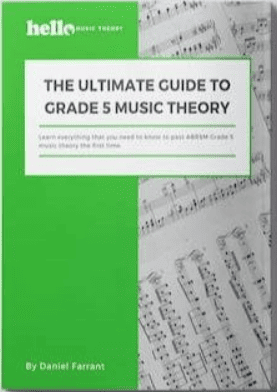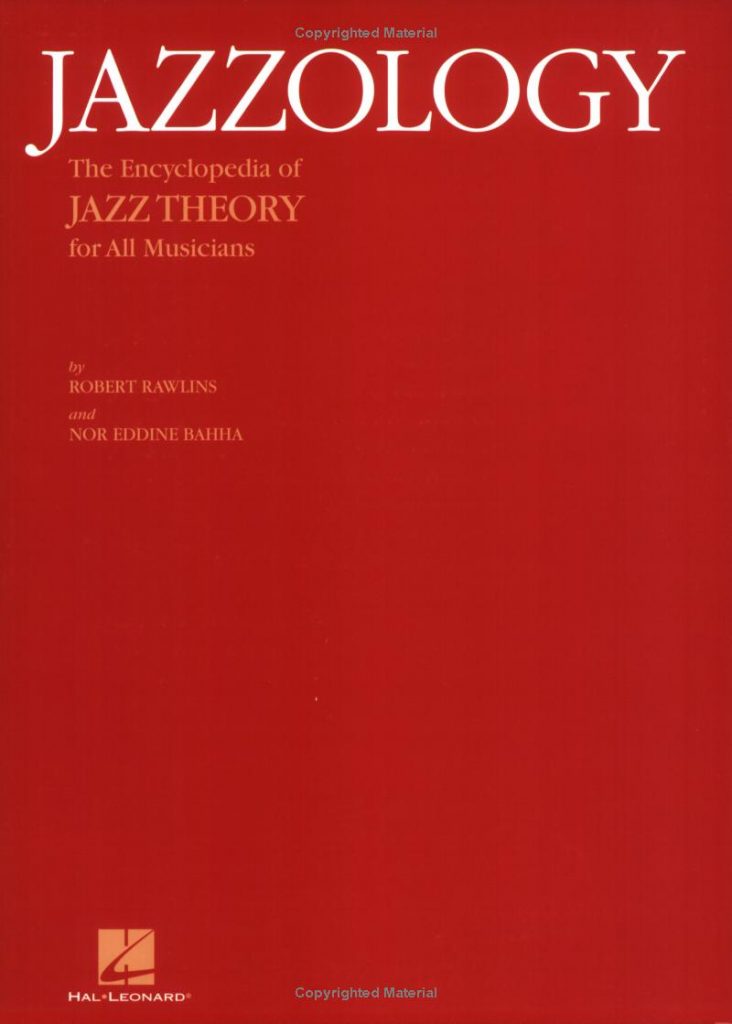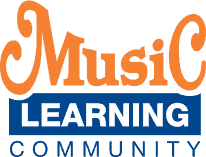Best Music Theory Books for Beginners and Pro Musicians
Music theory books are more than just pages; they’re an indispensable part of every aspiring and professional musician’s arsenal. These books lay down the foundational knowledge, unpacking the intricate nuances of rhythm, the dynamism of harmony, the soul of melody, and the solid backbone of structure.
If you’re a beginner, the right music theory book for beginners can be a game-changer, offering insights that can catapult your skills and creativity to new heights. But even if you’ve been in the game for a while, these books can offer fresh perspectives and refine your craft.
Types of Music Theory Books to Consider
Some books are designed for self-study, while others are intended for use in a classroom setting. Regardless of your level of experience or your learning style, there is a music theory book out there that can help you achieve your goals.
When choosing a music theory book, it is important to consider your specific needs and interests. Some books focus on a particular genre of music, while others provide a more general overview of music theory. Additionally, some books are more focused on practical applications, while others are more theoretical in nature. By considering these factors, you can choose a music theory book that is tailored to your individual needs and interests.
Best Music Theory Books for Beginners
Learning music theory can be a daunting task, but having the right book can make all the difference. Here are some of the best music theory books for beginners that are highly recommended by experts in the field:
1. Music Theory: From Absolute Beginner to Expert

Author: Nicholas Carter
Pages: 244
Publication Date: August 11, 2016
Description: This book is a practical and straightforward way to learn music theory. It covers everything from the basics of notation to advanced concepts like chord progressions and modes. The book is written in a step-by-step manner, making it easy for beginners to follow along. It also includes exercises and quizzes to test your understanding of the material.
2. Alfred’s Essentials of Music Theory: A Complete Self-Study Course for All Musicians (Book & 2 CDs)

Authors: Andrew Surmani, Karen Farnum Surmani, Morton Manus
Pages: 152
Publication Date: August 1, 2004
Description: Alfred’s Essentials of Music Theory Book is a complete self-study course to music theory that covers everything from the basics of notation to advanced concepts like harmony and counterpoint. It includes 75 exercises and 18 units to test your understanding of the material, as well as a CD with ear-training exercises.
3. The Complete Idiot’s Guide to Music Theory – 3rd Edition

Authors: Michael Miller
Pages: 368
Publication Date: July 12, 2016
Description: Tailored for newcomers, this book offers a refreshing dive into music theory. Michael Miller crafts a journey from notation basics to intricate subjects like harmony and counterpoint. With its engaging narrative, beginners will find the content both enlightening and easy to digest.
4. “Music Theory for Dummies” by Michael Pilhofer and Holly Day

Authors: Michael Pilhofer, Holly Day
Pages: 336
Publication Date: July 11, 2019
Description: This book is another great choice for beginners who want a more lighthearted approach to learning music theory. It covers all the basics of notation, scales, chords, and rhythm, as well as more advanced topics like harmony and counterpoint. The book is written in an engaging and accessible style, making it easy for beginners to follow along.
5. “The Ultimate Guide to Music Theory” by Hello Music Theory

Authors: Dan Farrant
Pages: 150
Publication Date: July 1, 2015
Description: This book is a great choice for beginners who want a step-by-step walkthrough of the fundamentals of reading and writing music correctly. It covers everything from the basics of notation to advanced concepts like chord progressions and modes. The book is written in a clear and concise style, making it easy for beginners to follow along. It also includes exercises and quizzes to test your understanding of the material.
Music Theory for Guitarists
Music theory is an essential part of becoming a skilled musician, and for guitarists, it can be particularly important. There are many music theory books that are specifically designed for guitarists, and these books can be incredibly helpful for anyone looking to improve their understanding of music theory.
1. Music Theory for Guitarists

Author: Tom Kolb
Pages: 104
Publication Date: May 1, 2005
Description: One of the most popular music theory books for guitarists is “Music Theory for Guitarists” by Tom Kolb. This book covers all of the essential music theory concepts that guitarists need to know, including scales, chords, and arpeggios. It also includes practical exercises and examples to help guitarists apply these concepts to their playing.
2. The Guitarist’s Music Theory Book

Author: Peter Vogl
Pages: 104
Publication Date: May 1, 2005
Description: Another excellent music theory book for guitarists is “The Guitarist’s Music Theory Book” by Peter Vogl. This book is designed to be a comprehensive guide to music theory for guitarists, covering everything from basic concepts to more advanced topics like modes and chord progressions.
3. Guitar Theory: Straight Talking Music Theory for Guitarists

Author: Joseph Alexander
Pages: 112
Publication Date: November 20, 2014
Description: For guitarists looking for a more modern approach to music theory, “Guitar Theory: Straight Talking Music Theory for Guitarists” by Joseph Alexander is an excellent choice. This book covers all of the essential music theory concepts that guitarists need to know, but it does so in a way that is easy to understand and apply to modern music.
Jazz Theory Books
Jazz theory books are designed to help musicians understand the complex harmonic structures and improvisational techniques used in jazz music. These books often cover topics such as chord substitutions, modal jazz, and the blues.
1. The Jazz Theory Book

Author: Mark Levine
Pages: 522
Publication Date: June 1, 1995
Description: This book is specifically geared towards jazz musicians and covers a wide range of advanced jazz theory concepts, including chord-scale theory, reharmonization, and improvisation. It includes numerous musical examples and exercises to help students apply these concepts to their playing.
2. Jazzology

Author: Robert Rawlins and Nor Eddine Bahha
Pages: 272
Publication Date: July 1, 2005
Description: “Jazzology” by Robert Rawlins and Nor Eddine Bahha is an essential guide to jazz theory. The book covers jazz harmony, rhythm, and improvisation in an accessible way, suitable for both newcomers and seasoned musicians. With practical exercises, it demystifies complex jazz concepts, making it a must-read for those passionate about jazz.
Classical Music Theory Books
Classical music theory books focus on the rules and structures of classical music, including harmony, counterpoint, and form. These books can be useful for both composers and performers looking to deepen their understanding of classical music.
1. Harmony and Voice Leading

Author: Edward Aldwell and Carl Schachter
Publication Date: January 1, 2018
Description: This textbook covers advanced music theory topics like harmonic progressions, voice leading, and chromaticism. It also includes musical examples and exercises to help students apply the concepts they are learning.
2. The Study of Counterpoint

Author: Johann Joseph Fux
Pages: 160
Publication Date: June 17, 1965
Description: A monumental text in music theory, Fux’s masterpiece explores counterpoint intricacies, influencing legends like Bach and Beethoven. Authored in the 18th century, its lessons remain invaluable to today’s music enthusiasts and experts.
3. The Study of Orchestration

Author: Samuel Adler
Pages: 1024
Publication Date: June 1, 2016
Description: This textbook provides a comprehensive introduction to the principles of orchestration, including instrument ranges, tone colors, and orchestration techniques. It includes numerous musical examples and exercises to help students apply these concepts to their own compositions.
Music Theory for Bass
Music theory for bass is a specialized area of music theory that focuses on the unique challenges and techniques used by bass players. These books often cover topics such as bass line construction, chord progressions, and improvisation.
1. Bass Guitar for Dummies

Author: Patrick Pfeiffer
Pages: 416
Publication Date: July 2, 2020
Description: A straightforward guide tailored for aspiring bassists, Pfeiffer’s book breaks down the essentials of bass guitar playing. From constructing compelling bass lines to understanding chord progressions and improvisational techniques, this book ensures beginners grasp the foundational aspects of bass music theory effortlessly.
2. The Bass Handbook

Author: Adrian Ashton
Pages: 272
Publication Date: June 1, 2014
Description: An encompassing resource, Ashton’s handbook delves deep into the world of bass playing. Covering a wide range of techniques and topics, it equips bassists with knowledge to enhance their playing skills. Whether you’re looking to understand the intricacies of bass line development or refine your improvisation prowess, this book stands as a trusted companion on your musical journey.
Comprehensive Guides to Music Theory
For those looking for a comprehensive guide to music theory, there are some options. These guides cover a wide range of topics, from basic notation and terminology to more advanced concepts such as harmony and analysis. Here are some of the best options:
1. The Musician’s Guide to Theory and Analysis

Author: Jane Piper Clendinning and Elizabeth West Marvin
Pages: ?
Publication Date: ?
Description: This book is a widely-used textbook for music theory courses at the college level. The book covers all the essential topics, including notation, scales, chords, and harmony, before moving on to more advanced concepts such as form and analysis. The book is well-organized and includes plenty of examples and exercises to help students master the concepts.
2. A Guide to Music Theory by Eric Taylor

Author: ?
Pages: ?
Publication Date: ?
Description: This book is a popular choice for those studying for ABRSM music theory exams. The book covers all the topics included in the exams, from basic notation and terminology to more advanced concepts such as harmony and analysis. The book is well-organized and includes plenty of examples and exercises to help students prepare for the exams.
Practical and Modern Approaches to Music Theory
When it comes to music theory, there are many different approaches to learning and understanding it. However, in recent years, there has been an increasing demand for practical and modern approaches to music theory that are relevant to today’s music industry.
1. Practical Guide to Modern Music by Mark Harrison

Author: ?
Pages: ?
Publication Date: ?
Description: This book focuses on the practical application of music theory in modern music, with an emphasis on popular genres such as rock, pop, and hip-hop. It covers topics such as chord progressions, melody writing, and rhythm, all with a focus on creating music that is both musically interesting and commercially viable.
2. Music Theory Remixed by Matthew Cochran

Author: ?
Pages: ?
Publication Date: ?
Description: This book takes a fresh look at traditional music theory concepts and reimagines them for the modern musician. It includes topics such as harmony, melody, and rhythm, but presents them in a way that is relevant to today’s music industry. The book also includes practical exercises and examples to help musicians apply the concepts to their own music.
3. Online Resources for Learning Music Theory
In addition to these books, there are also many online resources available for those looking to learn practical and modern music theory.
MusicTheory.net and HookTheory.com offer interactive lessons and exercises that can help musicians of all levels improve their understanding of music theory.
Overall, a practical and modern approach to music theory is essential for any musician looking to succeed in today’s music industry. Whether through books, online resources, or a combination of both, there are many options available for those looking to improve their understanding of music theory in a way that is relevant and applicable to their own music.
What to Look for in a Music Theory Book
When searching for a music theory book, there are a few things to keep in mind. Whether you are a beginner or an advanced musician, finding a book that suits your needs is essential. Below are some factors to consider when looking for a music theory book:
Level of Difficulty
It is important to find a book that is appropriate for your skill level. Beginners should look for books that provide a solid foundation in the basics of music theory. Intermediate and advanced musicians may want to look for books that delve deeper into specific topics or offer more complex exercises.
Comprehensive Coverage
A good music theory book should cover all the essential topics, including notation, scales, chords, harmony, and rhythm. Some books may also cover topics such as composition, arranging, and improvisation. Make sure the book you choose covers all the areas you want to learn.
Clarity and Readability
A music theory book should be easy to read and understand. Look for books that use clear language and provide examples and illustrations to help explain concepts. A well-organized book with a logical progression of topics can also make learning easier.
Exercises and Practice Material
Practice is essential when learning music theory. Look for books that provide plenty of exercises and practice material. Some books may also include audio or video resources to help you hear and see the concepts in action.
What are the Most Recommended Music Theory Books?
Some of the most recommended music theory books include Alfred’s Essentials of Music Theory, Music Theory for Dummies, and The Complete Idiot’s Guide to Music Theory. These books are suitable for beginners and intermediate musicians and cover all the essential topics in music theory.
Understanding Music Theory
Music theory is the study of the principles and practices of music. It is an essential aspect of learning music and is necessary for anyone who wants to become a proficient musician. A good music theory book can provide a comprehensive guide to understanding music theory and its applications in music.
Learning music theory can be challenging, but with the right resources, it can be an enjoyable and rewarding experience. A music theory book can help you learn the basics of music theory and provide you with a solid foundation for further study.
A good music theory book should cover the fundamental concepts of music theory, including rhythm, melody, harmony, and form. It should also explain how these concepts are used in different styles of music, such as classical, jazz, and popular music.
A music theory book should also provide exercises and examples to help you apply the concepts you have learned. This will help you develop your skills and gain a deeper understanding of music theory.
Overall, a good music theory book is an essential resource for anyone who wants to learn music theory and develop a deeper understanding of music. With the right book and some dedication, anyone can learn music theory and become a proficient musician.

